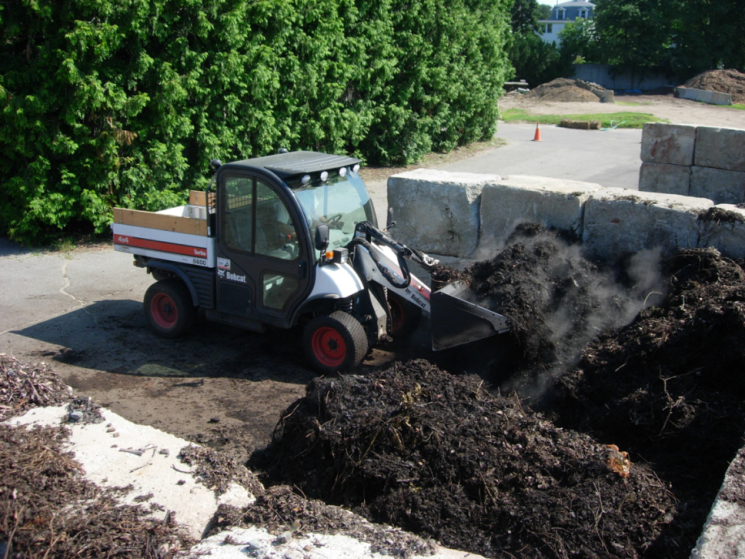Composting at Mount Auburn

In May of 2009 Mount Auburn Cemetery constructed a new Recycling Area as part of the Meadow Extension Project. In order to become more sustainable in our horticulture operations and use minimal land area we began a new composting operation.
Nine concrete bins are now used to organize and separate materials for recycling and processing. Areas have been provided for leaves, grave soil, topsoil, wood chips, mulch, wood, brush, concrete and asphalt.
Throughout the year, materials generated from our horticulture operations such as: shrub pruning waste, greenhouse flowers, floral tributes, leaves, grass clippings, and wood chips have been collected and turned into compost
We are producing two types of compost, bacterial and fungal. The bacterial compost is used for turf applications and greenhouse use. The fungal compost is used for shrubs, trees and nursery use. Each is comprised of a different mixture of green material (grass clippings, funeral flowers, shrub pruning waste) and brown material (leaves, wood chips, hay).
The collected green and brown materials are mixed in two bins, and then turned over every four days for two to three weeks by the Arboriculture and Gardening staff. Temperature and moisture of the compost mix is monitored to ensure that weed seeds and pathogens are killed. Temperatures must reach above 131 degrees for three consecutive days. Once the compost has reached ideal temperatures it is moved to another area to finish cooking and cool over time. The compost is then screened and ready to use in a number of ways including potting soil, compost tea, top dressing newly seeded areas and for amending soil in new plantings.
Staff visited New York institutions Battery Park City, Brooklyn Botanic Garden and Greenwood Cemetery to learn how they produce and use their compost, but we have a great resource right here at Harvard University. We are collaborating with Harvard to improve our own production and use of compost based on what they‟ve learned in their successful Sustainable Landscape Management Program.
Leave a Reply